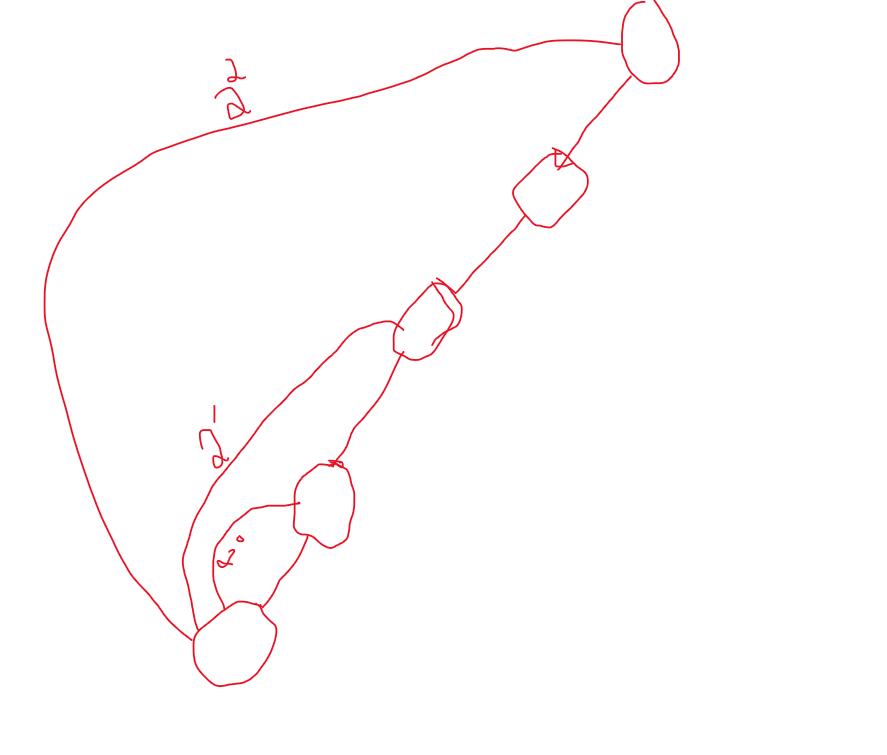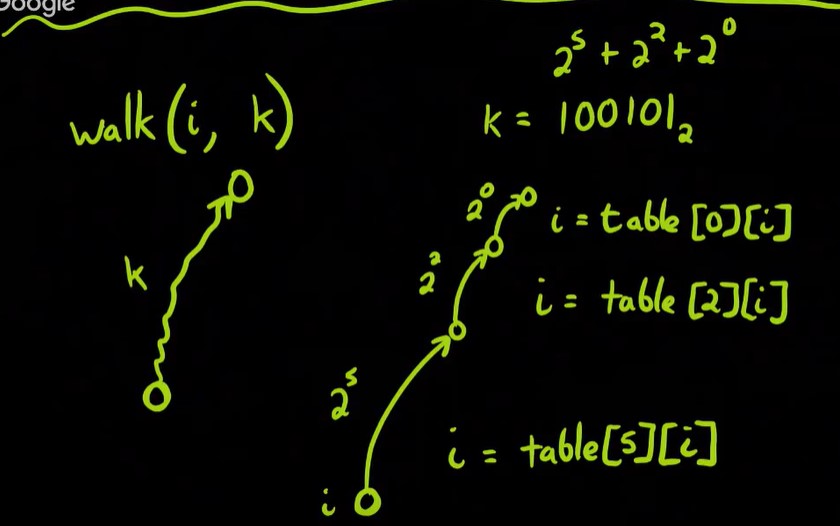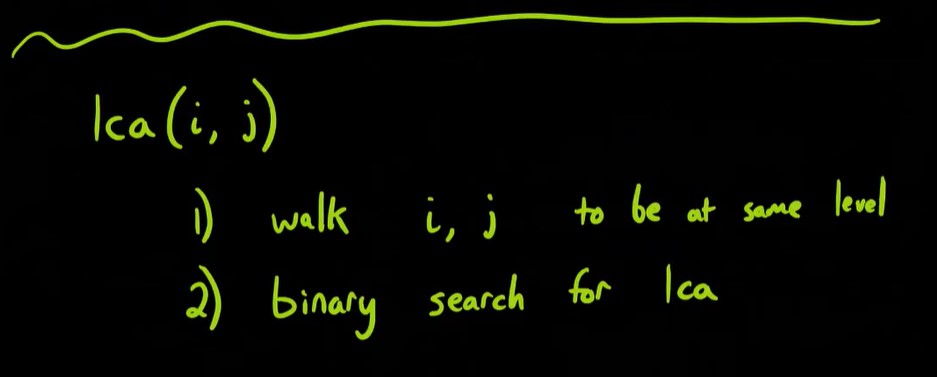LCA
LCA Using Binary Lifting
k=0 means the parent node
Create a table P[K][N] -> N is number of nodes
2^k<=N
So k<=logN
Hence Size of table is N*logN
jumps are made in order of powers of 2 ->1,2,4...etc
trying to divide by 2
let mid=par[i][k-1] (2^(k-1)th parent if exists)
par[i][k] is par[mid][k-1]
Its basically dividing a big jump into 2.
First make 2 nodes that we are going to find LCA to same depth using Walk function
if current jump results -1 then we have jumped of the table.
During LCA jump just close to LCA.
Check if jumping makes them equal if not then make the jump.
Do this until ur able to make a jump.
Finally the answer would be an immediate parent of a node.
Preprocessing is O(NlogN) and per query its O(logN)
Space is O(NlogN)



Do Bfs for depth wrt to any root node
void bfs(vector& adj,vector& par,VII& depth,int& n)
{
//arbitrarily root the tree
VII vis(n,false);
depth[0]=0;
vis[0]=true;
queue q;
q.push(0);
while(!q.empty())
{
int u=q.front();
q.pop();
for(auto it:adj[u])
if(!vis[it])
{
vis[it]=true;
depth[it]=depth[u]+1;
par[0][it]=u;
q.push(it);
}
}
}
Preprocess
void preprocess(vector<VII>& par,int& n,int& D)
{
for(int d=0;d<=D;++d)
{
for(int i=0;i<n;++i)
{
int mid=par[d-1][i];
if(mid!=-1)
par[d][i]=par[d-1][mid];
}
}
}
Walk and LCA
int walk(int i,int k,int& D,vector<VII>& par)
{
//To make a node i at depth d
for(int d=0;d<=D && i!=-1;++d)
if((1<<d)&k)i=par[d][i];
return i;
}
int LCA(int a,int b,vector<VII>& par,VII& depth,int &D)
{
if(depth[a]>depth[b])
a=walk(a,depth[a]-depth[b],D,par);
else if(depth[b]>depth[a])
b=walk(b,depth[b]-depth[a],D,par);
if(a==b)
return a;
for(int d=D;d>=0;--d)
{
//to go close faster make big jumps
if(par[d][a]!=par[d][b])
{
a=par[d][a];
b=par[d][b];
}
}
return par[0][a];
}
int D=log2(n);
comments powered by Disqus